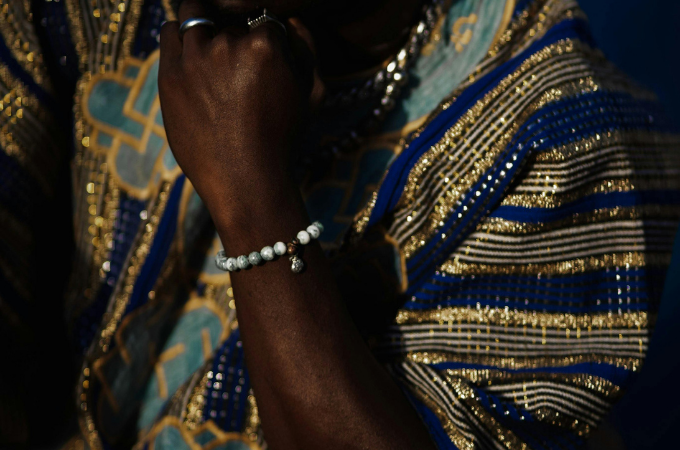
“In Yoruba cosmology…” was usually the first thing out of my historian father’s mouth whenever he wanted to enlighten us about some aspect of native intelligence he thought we desperately needed to effectively navigate wider society. My parents had raised my three younger sisters and me in a suburban area of Ibadan, not far from the University of Ibadan, where my father lectured. Due to its close proximity to the university, we lived a rather sheltered life, punctuated only by the interludes of Christmas visits to Ile Olugbon, my grandfather’s house, in Ipetumodu, our village located in the north of Osun State.
My father was brought up in a Catholic family, and my mother, in an Anglican one. They both had cosmopolitan upbringings that, I believe, defined the flavor of religion that enveloped our home. My experience of religion at home was never militant but rather one that seemed to draw from the same inquisitorial approach that my academic parents brought to their work. It was never a shallow wading through holy books; it was a thirst for knowledge, a reaching out towards the philosophical and the corporeal — a substantiation of the unsubstantiated. This formed a sturdy foundation that colored every area of my life: my academic pursuits, my perception of the world, my interactions with the mundane and my understanding of people.
When I left home at the age of seventeen, to pursue undergraduate studies in English and Creative Writing in England, I was just coming into my own as a poet. I was hungry to understand the world around me and my purpose within it. Poetry coursed through everything like water flowing through rocks, and as a young poet, it was my mission to strike them open with my pen and watch stanzas and couplets pool at my feet. Before I left Nigeria, I remember how every moment at the dinner table became an opportunity for me to document happenings within the jagged lines of free verse. My mother once exclaimed at one such occasion, “Can we no longer breathe without it being made into poetry?” Perhaps in hindsight, it was my way of creating a portal that I could step into whenever I desired to teleport home. And when biting sheets of ice formed on my hairless chest beneath my turtleneck on lonely mornings in my Coventry apartment, Yoruba cosmology became the stardust that I infused into my poetry in a frigid attempt to establish interstellar communication with my home.
Every Nigerian knows that feeling — the longing for home and home spaces, the comatose architecture that comes alive again whenever we congregate in it, and the laughter and embraces of aunties and cousins that our ears and bodies have missed for extended periods. It was then that I realized my family, my father’s house, and my grandfather’s house in Ipetumodu were my religion — the holy trinity embodying the tenets of Yoruba life and my spiritual connection to Yoruba cosmology. This awakening that led me to the path of Yoruba traditional religion as Christianity lacked the same all-encompassing power of Yoruba spirituality. While Christianity offers fulfilment to those for whom it is sufficient, in my experience of Yoruba spirituality with its keen sense of history, place, and identity, the fulfilment that comes from having such a complex and highly cerebral heritage as a birthright, rather than a product of conversion — whether forced or willing-adjacent — fills me with a profound sense of gratitude.
When I moved to the U.S. in 2018, after completing my undergrad, I arrived to pursue graduate studies at Kennesaw State University. By this time, I had completely stopped going to church, as it didn’t fulfil my spiritual and social needs as a Yoruba man. I continued to engage with enterprises that I believed would bring me closer to an understanding of Yoruba cosmology. At one point, I had taken on a research assistant position with Professor Jacob K. Olupona of the Harvard Divinity School, through which I was able to do work reading and translating Odù Ifá — the oracular literary corpus utilized in the divination process of Ifá in Yoruba religion. This knowledge changed the face of my later poems, as many of them began to incorporate the names of Yoruba gods and goddesses and Yoruba proverbs in my quest to fully immerse myself in Yoruba philosophy. It also guided my work for my creative dissertation, which saw me travel to Cuba in 2020 for ethnographic research for my novel about an enslaved Yoruba woman taken to work on a plantation in Matanzas. I visited the home of a Babalawo in Havana who had in his yard a shrine to Osanyìn — the orisha of herbs and herbal healing — and witnessed the openness of Yoruba traditional religious expression, especially the Ifa devotees in their white clothing on the streets of Havana. It was also at this point that I began to explore the intricate relationship between philosophy and poetry in their shared pursuit of meaning and existence; in the same way that I was seeking meaning and understanding of my existence as a Yoruba man.
After many years of hesitation, given the reputational damage done to traditional religion and religious expressions by British colonial sentiments in Nigeria, I finally stepped out of my rented Indiana home in August of 2021 with Ifá bracelets on both my wrists. I was on my way to an orientation event at Butler University, where I would be starting my MFA in Creative Writing that fall. I took a seat somewhere in the sunroom and someone asked, “What do those mean?” while pointing at my wrists. I looked down at the green and brown beads that encircled my brown skin and I beamed with pride.
Being Yoruba was my home, my identity, my connection to my family, my religion. And whether I was away from these home spaces, or the physical structures of my father’s house, or Ile Olugbon, I knew then as I do now that home is in the byways of the heart.
Photo by Ottun Abdulmalik from Pexels


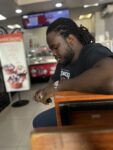
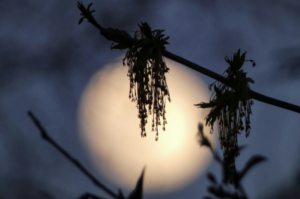
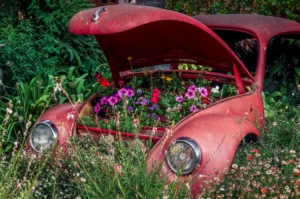
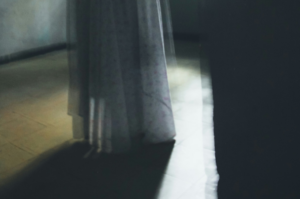
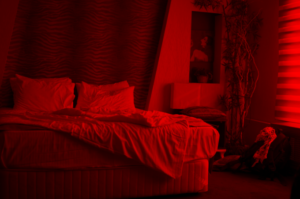



COMMENTS -
Reader Interactions